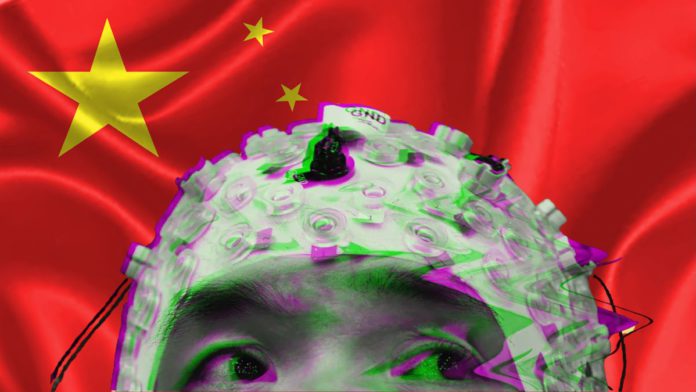In a rather shocking development, researchers from the Comprehensive National Science Center in Hefei, China, claimed to have created artificial intelligence software capable of “mind-reading” and can read thoughts. Additionally, they claimed in a now-deleted video that the system could be used to gauge a person’s commitment to the Chinese Communist Party.
The announcement of this software is heralded as a step to foster “AI-tocracy” by China, drawing upon the fears of living in a big brother dystopia as mentioned in George Orwell’s popular novel 1984.
The software tool, according to experts, monitors the emotions, facial expressions, and brain waves of a person who has received “thought and political education” and analyzes them, however, it is unclear exactly how the system measures allegiance or reads minds.
The institution boasted about its “mind-reading” software in a Weibo video titled “The Smart Political Education Bar” that it released on July 1. As per translation by Radio Free Asia the software will be used on party members to further reinforce their determination to be thankful to the party, listen to the party, and follow the party.
The institution said its AI software was watching the subject’s behavior to assess how attentive he was to the party’s thought education as he scrolled through online material promoting party ideology at a kiosk. The software would next evaluate the person’s “emotional identification” and “learning attentiveness” to determine if they met the loyalty bar or required further training. It is now not feasible to do a thorough review of the biometric tool’s performance in producing the desired outcomes because the research and video are no longer accessible to the general audience, following a public outcry.
However, the Hefei Comprehensive National Science Center said in a statement that it had urged 43 party members of the research team to participate in party classes while being observed by the new software before it was removed from its website. The alleged biometric tool’s release (and disappearance) comes weeks after a New York Times investigation exposed how China is using biometric mass surveillance on a considerably greater scale than previously thought.
China has a notoriety for spying on both its own citizens and those living in the territories it occupies, whether it’s Taiwan or Hong Kong. Earlier, several times the Chinese government has also come under fire for tracking and policing Uighurs, an ethnic minority group held by the Chinese Communist Party in “reeducation” camps, using AI and face recognition technology. According to the Senate Foreign Relations Committee, the Chinese Communist Party has imprisoned between 1 million and 3 million Uighurs in reeducation camps.
Also Read: The Rise of China in the Autonomous Vehicle Industry
Though it is undoubtedly not the first time that a brainwave scan capability has been applied to human beings using them to assess CCP loyalty highlights how AI can be exploited by the government for their vested interests. This also adds to the fears of Chinese citizens who are already living under a myriad of sensors in the nation. This is also surprising because China already has laws for user privacy backed by its AI Ethics guidelines announced last year.


